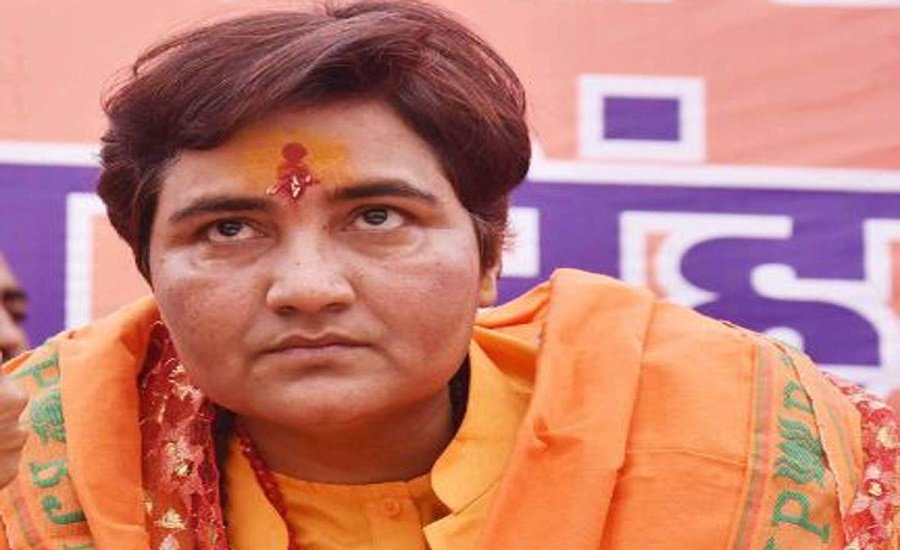
The VHP and its sister organisations belonging to the Sangh Parivar have tried to obstruct the judicial process to either save their own, or securing conviction and stringent sentences to their ideological or religious adversaries.
Rashae’ K | Clarion India
THE Vishwa Hindu Parishad (VHP) demanded action against Jamiat Ulama-e-Hind (JuH) for pledging legal help to those convicted in Ahmedabad blasts. The rightwing Hindutva outfit’s stand on the matter should be taken with a pinch of salt as their double standards are no secret.
The VHP is calling for action against the Jamiat for its offer to provide legal aid to the convicts simply because they are Muslim. While doing so, they conveniently ignored their own lenience towards convicts involved in acts of terrorism. The glaring example of this double standard is that of Sadhvi Pragya Singh Thakur. She has been elected a Member of Parliament on the ticket of the Bharatiya Janata Party (BJP), the VHP’s ideological sibling, despite being convicted of Malegaon blast.
Malegaon blasts case is not an exception. The stand taken by the saffron fraternity vis a vis twin blasts in Samjhauta Express and Ajmer Dargah bombing among other terrorist attacks is still fresh in our memory. If they were evenhanded in their approach to deal with crimes and adopted zero tolerance towards terrorism as they often claim, they would not have interfered in the functioning of the judiciary to bail out their own.
A person is innocent until proven guilty. This is the premise on which our legal system is based. But the VHP seems to have two different yardsticks to judge people, one for Hindus and another for Muslims. If this is not the case, why would they hasten to declare one set of people guilty without waiting for the legal process to complete while going out of their way to defend another even after conviction.
What’s more, the VHP and its sister organisations belonging to the Sangh Parivar have tried to obstruct the judicial process to either save their own, or securing conviction and stringent sentences in their ideological or religious adversaries. While in the case of Afzal Guru, accused in Parliament attack case, the saffron fraternity putting pressure on the judiciary to carry on execution, in the case of Ajmal Kasab, they were against the legal process.
On both occasions, their contention was that they were open and shut cases needing no trial. Even if the trial was conducted, the accused should not be given any legal aid. This is against the principle of justice delivery system as laid down by the constitution.
Conviction and sentencing by a lower court may or may not be final and absolute. There can be many legal loopholes in a judgment. Hence, a convict can appeal to the higher judiciary, high courts or Supreme Court, for a relook into the case. He has the right to explore and exhaust all legal options available to him before his execution.
Even sentencing cannot go unquestioned by higher judiciary. It needs to be scrutinised on the basis of aggravating and mitigating circumstances in each case. Hence, a saner counsel for the Hindutva brigade, leave the matters related to legalities of crime and punishment to the courts in deference to the autonomy of our judiciary.
VHP spokesman Vinod Bansal described the court verdict in the case as historic. What makes the judgment historic? The judge handed death sentence to as many as 38 people while awarding life term to 11. According to him, the quantum of punishment adds to the historicity of the judgment. What he won’t say is that all the convicts are Muslim.
An ideology that treats every Muslim as a criminal needs no courts, no judiciary, to try members of the minority community in any case. They can be convicted and punished summarily on the basis of freewheeling charges leveled against them, especially by the ultra-nationalist Hindutva groups. Examples of instant justice delivery system are aplenty. Have a look at the functioning of the cow vigilantes, anti Romeo squads, anti conversion gangs etc. active in many parts of the country. No hearing, no chargesheet, no appeal is needed to punish a person as long as he belongs to the minority community.
Bansal lauded the police for busting the entire network of terrorists without having any eyewitness whose links extended to Azamgarh in Uttar Pradesh. Would he have same thing to say if the accused belonged to his own ideological fraternity.
The VHP leader cited the example of Sri Lanka where lawyers had refused to take up the case of “terrorists”. How did they reach to the conclusion that the accused were, in fact, terrorists? If the legal fraternity treats the accused as guilty before due process of law, what is the use of criminal justice system? If tomorrow he faces the charge of indulging in terrorism, would he like to be denied legal aid?

